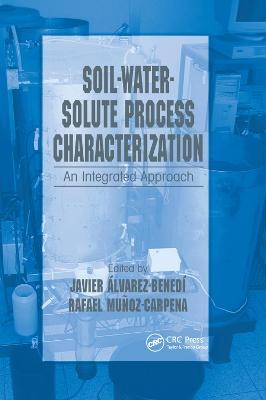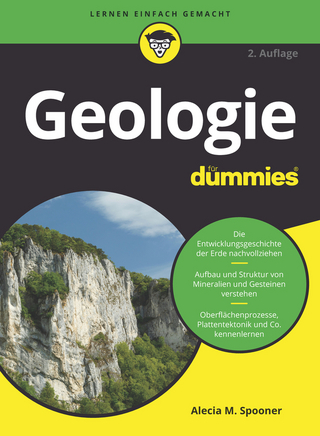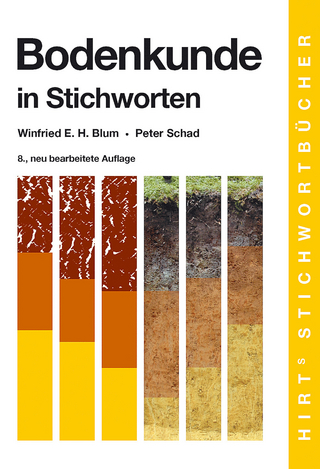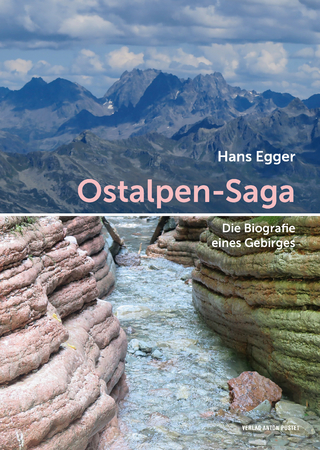
Soil-Water-Solute Process Characterization
An Integrated Approach
Seiten
2019
CRC Press (Verlag)
978-0-367-39335-9 (ISBN)
CRC Press (Verlag)
978-0-367-39335-9 (ISBN)
The practitioner or researcher often faces complex alternatives when selecting a method to characterize properties governing a soil process. After years of research and development, environmental and agricultural professionals now have an array of methods for characterizing soil processes. Well-established methods, however, may not be suitable for the specific conditions of a study since many soil characteristics are intrinsically variable. An objective, integrated approach for soil characterization is needed to more effectively quantify parameters.
Soil-Water-Solute Process Characterization goes beyond technical guidance and addresses the complicating factors such as spatial and temporal variability of soil processes, scale issues, soil structure, and the trade-offs between methods. It focuses on advanced methods for the monitoring and modeling of mass transfer processes in soil. Expert contributors present limitations to well-known methods and alternatives, discussing their practical applications for characterization efforts, evaluating strengths and weaknesses, and focusing on a reduced set of selected techniques. Three in-depth sections cover everything from multidisciplinary approaches for assessing subsurface non-point source pollution to techniques for characterizing water and energy balances at the soil-plant-atmosphere interface, field methods for monitoring soil water status, and computer models for characterizing the effect of chemicals in soil.
This single-source reference is transforming method selection and our understanding of the principles, advantages, and limitations of the available monitoring techniques. Written in a simple and straightforward manner, Soil-Water-Solute Process Characterization is a detailed cookbook and a useful, practical reference for students, practitioners, and researchers.
Soil-Water-Solute Process Characterization goes beyond technical guidance and addresses the complicating factors such as spatial and temporal variability of soil processes, scale issues, soil structure, and the trade-offs between methods. It focuses on advanced methods for the monitoring and modeling of mass transfer processes in soil. Expert contributors present limitations to well-known methods and alternatives, discussing their practical applications for characterization efforts, evaluating strengths and weaknesses, and focusing on a reduced set of selected techniques. Three in-depth sections cover everything from multidisciplinary approaches for assessing subsurface non-point source pollution to techniques for characterizing water and energy balances at the soil-plant-atmosphere interface, field methods for monitoring soil water status, and computer models for characterizing the effect of chemicals in soil.
This single-source reference is transforming method selection and our understanding of the principles, advantages, and limitations of the available monitoring techniques. Written in a simple and straightforward manner, Soil-Water-Solute Process Characterization is a detailed cookbook and a useful, practical reference for students, practitioners, and researchers.
Javier Álvarez-Benedí, Rafael Munoz-Carpena
Table of Contents. Preface: Soil Characterization, an Integrated Approach. Integration of Soil Process Characterization. Soil and Physical Processes: Energy and Water. Soil and Solutes Processes. Soil and Microorganisms. Spatial Variability and Scale Issues. Modeling Tools.
| Erscheinungsdatum | 25.09.2019 |
|---|---|
| Verlagsort | London |
| Sprache | englisch |
| Maße | 156 x 234 mm |
| Gewicht | 1102 g |
| Themenwelt | Naturwissenschaften ► Geowissenschaften ► Geologie |
| Naturwissenschaften ► Geowissenschaften ► Hydrologie / Ozeanografie | |
| ISBN-10 | 0-367-39335-2 / 0367393352 |
| ISBN-13 | 978-0-367-39335-9 / 9780367393359 |
| Zustand | Neuware |
| Haben Sie eine Frage zum Produkt? |
Mehr entdecken
aus dem Bereich
aus dem Bereich


